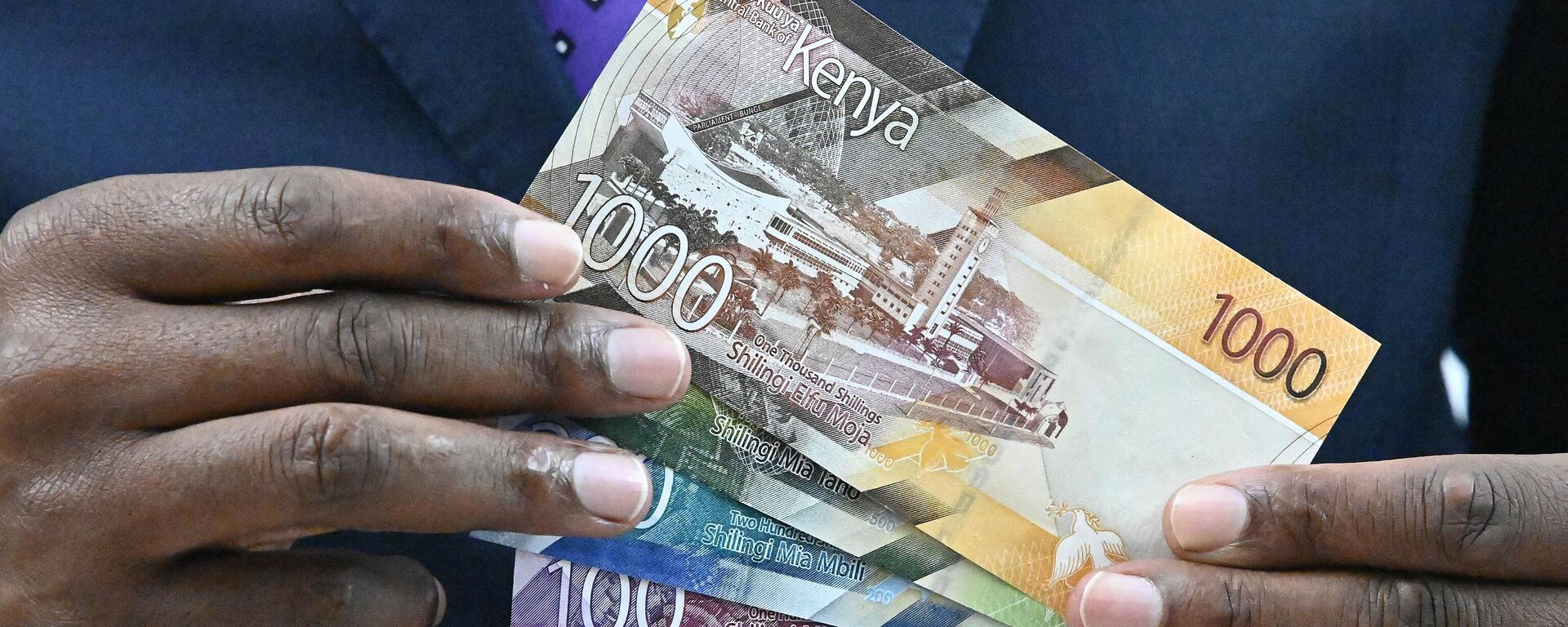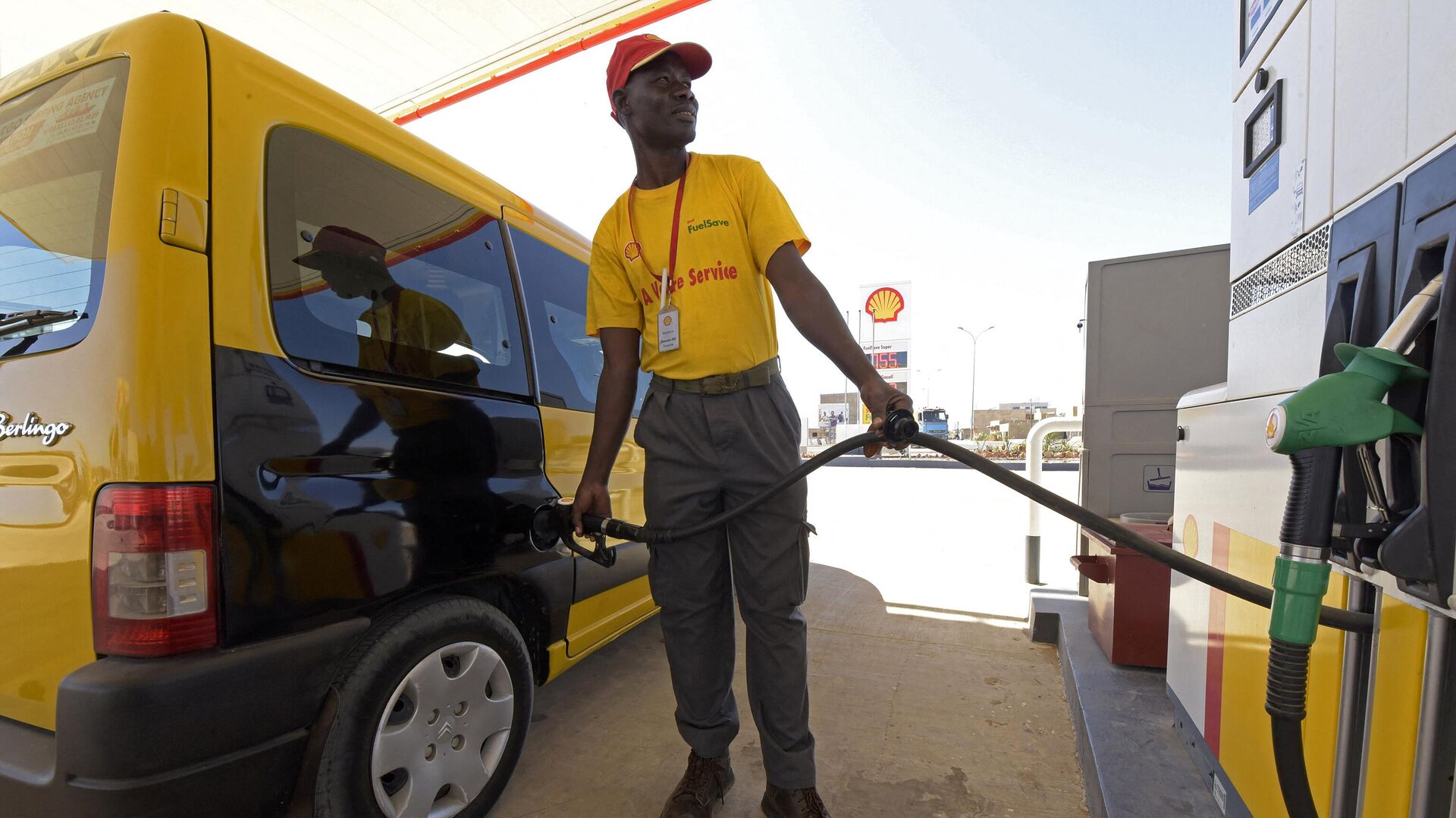https://sputnikglobe.com/20230109/senegal-raises-fuel-prices-to-alleviate-budget-strains-1106159086.html
Senegal Raises Fuel Prices to Alleviate Budget Strains
Senegal Raises Fuel Prices to Alleviate Budget Strains
Sputnik International
Senegal has raised prices on subsidized fuels in order to mitigate the pressure on the country’s budget, according to the media.
2023-01-09T10:29+0000
2023-01-09T10:29+0000
2024-06-08T13:07+0000
africa
west africa
senegal
economic crisis
energy crisis
subsidies
petrol
fuel prices
diesel fuel
fuel
https://cdn1.img.sputnikglobe.com/img/07e7/01/09/1106158929_0:0:3067:1725_1920x0_80_0_0_56de79c1293f5bed79b9afe0ce3aa59a.jpg
Senegal has raised prices on subsidized fuels in order to mitigate the pressure on the country’s budget, according to media reports. The government has recently announced an increase in fuel and electricity prices starting from Saturday, January 7. The prices of diesel and petrol were expected to rise by 100 CFA francs. As of this weekend, the cost of a liter of diesel rose to 755 CFA francs (around $1.23) from 655 CFA francs, while the price of unleaded fuel increased to 990 CFA francs from 890 CFA francs.According to the country’s Oil Minister Sophie Gladima, the measure was aimed at reducing public spending on subsidies and redirecting the funds to the most vulnerable. Last year, state expenditures on fuel subsidies almost quadrupled, reaching 580 billion CFA francs. Senegal's government assumes that the recent price growth will allow the country to reduce fuel spending to approximately 450 billion CFA francs in 2023, Trade Minister Adbou Karim Fofana stated, as cited by the media. In November, Senegal’s President Macky Sall announced the government's plan to enhance social protection efforts in 2023. He promised to allocate 500 billion CFA francs to the relief plan, which included rent subsidies, as well as price caps on some basic products to alleviate pressure on numerous households across the country. As Senegal is now on its way to become a gas exporter in 2023, the strains on the budget are expected to be mitigated, according to the officials. The country is going to provide for its domestic market, as well as export to other states. The annual inflation rate in Senegal rose to 14.1% in November from 13% previous month, reaching a new record high since 2006. The surge was mainly linked to higher food prices. A substantial increase in living costs has been seen in many parts of Africa, hampering economic development and having a negative impact on real incomes and food security. According to data published by the United Nations Economic Commission for Africa, the median inflation rate in East Africa reached 9% in recent months due to the rise in food and energy prices.
https://sputnikglobe.com/20221120/east-africa-facing-rise-in-cost-of-living-due-to-increasing-food-and-energy-prices-un-data-shows-1104469077.html
africa
west africa
senegal
Sputnik International
feedback@sputniknews.com
+74956456601
MIA „Rossiya Segodnya“
2023
News
en_EN
Sputnik International
feedback@sputniknews.com
+74956456601
MIA „Rossiya Segodnya“
Sputnik International
feedback@sputniknews.com
+74956456601
MIA „Rossiya Segodnya“
west africa, senegal, economic constraints, fuel prices, energy crisis, fuel subsidies
west africa, senegal, economic constraints, fuel prices, energy crisis, fuel subsidies
Senegal Raises Fuel Prices to Alleviate Budget Strains
10:29 GMT 09.01.2023 (Updated: 13:07 GMT 08.06.2024) Senegal, as well as most of its neighbors in West Africa, is facing a significant increase in cost of living, which is largely attributed to rising global hydrocarbon prices caused by the lingering effects of the COVID pandemic and general economic turbulence. Surging energy and food prices led to inflation in the country reaching a record high.
Senegal has raised prices on subsidized fuels in order to mitigate the pressure on the country’s budget, according to media reports.
The government has recently announced an increase in fuel and electricity prices starting from Saturday, January 7. The prices of diesel and petrol were expected to rise by 100 CFA francs.
As of this weekend, the cost of a liter of diesel rose to 755 CFA francs (around $1.23) from 655 CFA francs, while the price of unleaded fuel increased to 990 CFA francs from 890 CFA francs.
According to the country’s Oil Minister Sophie Gladima, the measure was aimed at reducing public spending on subsidies and redirecting the funds to the most
vulnerable. Last year, state expenditures on fuel subsidies almost quadrupled, reaching 580 billion CFA francs.
Senegal's
government assumes that the recent price growth will allow the country to reduce fuel spending to approximately 450 billion CFA francs in 2023, Trade Minister Adbou Karim Fofana stated, as cited by the media.
In November, Senegal’s President Macky Sall announced the government's plan to enhance social protection efforts in 2023. He promised to allocate 500 billion CFA francs to the relief plan, which included rent subsidies, as well as price caps on some basic products to alleviate pressure on numerous households across the country.
As Senegal is now on its way to become a
gas exporter in 2023, the strains on the budget are expected to be mitigated, according to the officials. The country is going to provide for its domestic market, as well as export to other states.
"Just exploiting our hydrocarbons will enable us to accelerate public access to electricity and above all to lower the cost of production and encourage industrialization," the oil minister is quoted as saying.
The annual inflation rate in Senegal rose to 14.1% in November from 13% previous month, reaching a new record high since 2006. The surge was mainly linked to higher food prices. A substantial increase in living costs has been seen in many parts of Africa, hampering economic development and having a negative impact on real incomes and food security. According to data published by the United Nations Economic Commission for Africa, the median inflation rate in East Africa reached 9% in recent months due to the rise in food and energy prices.

20 November 2022, 17:14 GMT



